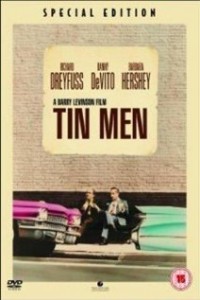
The United States has been responsible for many great innovations but not all have turned out the way the inventors, architects or innovators intended. One such miscalculation was the introduction of ‘commissioned-only’ salespeople.
This initiative spawned negative effect on the reputation and results of salespeople worldwide and its stigma has remained ever since, commissioned or not.
Have you ever wondered how ‘commission only’ selling was born and why it harbours such negative sentiment? To understand the driving forces behind the commission only sales force, one must travel back to the US in 1950’s, post World War II / Korean War era when this became an industry norm.
During the preceding decade in the 1940’s, companies such as General Electric, Ford and General Motors, geared up massive factories for war time production.
These huge operations churned out millions of items of product every day. When the war ended demand for these products declined and so these businesses had to keep their production facilities ticking over at “war time” levels to avoid losing profits. With productions levels exceeding American demand, these huge organisations faced the dilemma of how to rid production surplus and keep making money.
It was around this time Marketing was introduced as part of the solution, eventually leading to the concept we now know as Mass Consumerism and Mass Marketing. However, as Marketing worked to establish its credentials, there was increased reliance on what was then considered the fair practice of Selling.
However, due to huge over-supply of product, companies urgently needed to be rid of these products at the lowest cost.
So, in haste, it was decided that additional salespeople would be engaged on a sell-and-earn-basis. Salespeople were therefore paid for selling something and if they made no sale they made no income. These salespeople were not employees and this kept business costs down. Hereby we are introduced to the business strategy of commission-only salespeople.
So how did commission-only sales develop such a poor reputation?
Let’s look at the climate in the US at the time. Thousands of military personnel were returning home with little qualification, no job and no desire to go on the GI Bill (the US government’s free education programme). So, many turned to what appeared to be a quick and easy way to earn a great living – go out and sell. Commission-only sales required no special qualifications; had no hard and fast rules; and no ethical or corporate guidelines to follow – all they had to do was just get a deal and get paid.
Because these commission-only salespeople only got paid if they sold something, many told any story, made any promise and agreed with anything to secure the deal, even if it meant the customer was worse off. This is how the rot set in. These salespeople were intently focused on earning a commission – their living, and so many did it at any cost. For most, self interest was their only focus; the customer was seen as a means-to-an-end, a schmuck, or a “muppet”. As reported recently via a Goldman Sachs news story “customers were purely objects that made you money and the companies did nothing or very little to address the ensuring corruption. No wonder people still feel somewhat cynical and wary of sales people today.” The legacy of commission-only selling has proven very hard to shift.
The 1987 movie, Tin Men, starring Richard Dreyfuss and Danny De Vito typified the behaviour and self serving attitude of commissioned salespeople of the era. You may recall these two aluminium siding salespeople sold at whatever cost, eventually even to themselves. But the real casualty was the reputation of Selling. The image of the commission-only salesperson has since plagued the hearts, minds and beliefs almost every person you meet. The images of ‘used car’ salesmen out to rip us off is firmly fixed in our psyche and is proving hard to shift.
The legacy of the commission-only salesperson still plagues certain industries today. Industries such as Real Estate, New Home Sales, Life Insurance, Automotive, Property, Mortgages & Financial Markets, and Whitegoods Retailers often employ commission-only sales people with many of the same self serving outcomes experienced back in the 1950’s, 60’s & 70’s. The barrier to entry for commission-only selling is usually zero with people often very poorly trained in professional and ethical consultative selling practices and no moral compass to guide them.
Today many organisations realise that professional, highly skilled salespeople are critically to their business success. These leaders pay salespeople a decent salary, taking the worry of money off the table and putting in place clear performance expectations and proper sales and business training. This means their salespeople focus on the right things; finding and delivering long term and profitable client relationships and sales to the organisation where all parties benefit. It also means sales people can focus on forging viable client relationships built on trust and substance as well as developing their capabilities without having to bend the rules or modify the truth simply to make a living.
Therefore if you find yourself in commission-only selling, does it mean you have to be an unscrupulous sales person to succeed? NO. Here are some suggestions to avoid some of the deadly sins of commission-only selling
Stop the hard sell: many commission-only sales people use pressure tactics to bully or coerce their prospects into buying with the express purpose of getting a deal signed. Instead focus on taking a consultative selling approach and listen to what you prospect needs and wants, then determine if you can help them or not. If you can then do so and if you cannot, then move on to your next prospect. You always need to have a steady stream of prospects in your pipeline that fit your market.
Stop talking your way out of the sale because of your need to prove to your prospects that you are smart and worthy of their respect. You will only lose them. The way to earn their respect is to listen to them and adopt consultative selling practices. Assume less and ask more questions and you will find that you listen your way to respect and more sales.
Change ‘the money is everything’ focus and stop focusing on what the sale means to you in terms of reward (commission or otherwise). Instead think of what the sales will mean for the customer and focus on that; if you get that right the money will follow.
Avoid selling on Charm and build credibility instead. Building trust and lowering your prospect’s resistance to change are the biggest challenges you will face early on in the sales process. By building trust slowly basing the selling and buying process on substance not charm you will build your bridge to win deals by first winning credibility.
Don’t lose the sale because of the blame game. Anger often rears its ugly head when reality does not meet one’s expectations. Many salespeople, especially those that earn the majority of their income through commission, are discouraged by the amount of work it takes to succeed in sales; the amount of rejection that one must endure; and the many factors that are outside of one’s control as a salesperson.
Remember everybody lives by selling something.
Author: Sue Barrett, www.barrett.com.au




New Article Email Notification